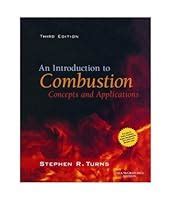Combustion is a complex and fascinating process that plays a crucial role in our daily lives, from powering our cars to heating our homes. Despite its importance, combustion can be a difficult concept to grasp, especially for those without a background in chemistry or physics. In this article, we will break down the basics of combustion, explore its various applications, and provide examples to help illustrate the concepts.
What is Combustion?

Combustion is a chemical reaction between a fuel source and an oxidant that releases heat and light energy. This process involves the breakdown of molecules into simpler compounds, releasing energy in the form of heat, light, and sound. Combustion is an exothermic reaction, meaning it releases energy into the surroundings.
The Combustion Equation
The combustion equation is a simple representation of the combustion process:Fuel + Oxidant → Products + Energy
In this equation, the fuel source can be any substance that can undergo combustion, such as gasoline, wood, or propane. The oxidant is typically oxygen, but can also be other substances like chlorine or fluorine. The products of combustion include carbon dioxide, water vapor, and other gases, as well as heat and light energy.
Types of Combustion
There are several types of combustion, each with its own unique characteristics and applications.Complete Combustion
Complete combustion occurs when the fuel source is completely broken down into carbon dioxide and water vapor. This type of combustion is ideal, as it releases the maximum amount of energy from the fuel source.Incomplete Combustion
Incomplete combustion occurs when the fuel source is not fully broken down, resulting in the formation of carbon monoxide, soot, and other pollutants. This type of combustion is less efficient and can have negative environmental impacts.Rapid Combustion
Rapid combustion occurs when the fuel source ignites quickly, releasing a large amount of energy in a short amount of time. This type of combustion is often used in engines and other high-performance applications.Applications of Combustion
Combustion has a wide range of applications across various industries, including:Transportation
Combustion is used to power vehicles, from cars and trucks to airplanes and boats. Internal combustion engines rely on the combustion of fuel to generate energy, which is then converted into motion.Power Generation
Combustion is used to generate electricity in power plants. Fossil fuels like coal, natural gas, and oil are burned to produce steam, which drives a turbine to generate electricity.Heating and Cooling
Combustion is used in heating and cooling systems, such as furnaces, boilers, and water heaters. These systems rely on the combustion of fuel to generate heat, which is then used to warm or cool buildings.Examples of Combustion
Combustion is all around us, from the flames in our fireplaces to the engines in our cars. Here are a few examples of combustion in action:Campfires
Campfires are a classic example of combustion. When we light a match or lighter, the fuel source (wood) ignites, releasing heat and light energy.Internal Combustion Engines
Internal combustion engines, like those found in cars and trucks, rely on the combustion of fuel to generate energy. The fuel source (gasoline or diesel) is ignited inside the engine, releasing energy that is then converted into motion.Fireworks
Fireworks are a spectacular example of combustion. When a firework explodes, the fuel source (typically black powder) ignites, releasing a burst of energy in the form of light, sound, and heat.





We hope this article has provided a comprehensive overview of combustion concepts and applications. Whether you're a student, researcher, or simply curious about the world around you, understanding combustion can help you appreciate the complexity and beauty of this fundamental process.
What is combustion?
+Combustion is a chemical reaction between a fuel source and an oxidant that releases heat and light energy.
What are the different types of combustion?
+There are several types of combustion, including complete combustion, incomplete combustion, and rapid combustion.
What are some examples of combustion?
+Examples of combustion include campfires, internal combustion engines, and fireworks.
